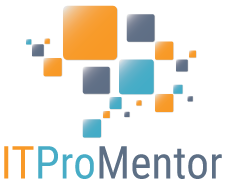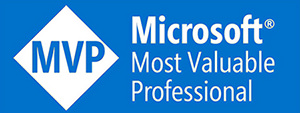Knowledge is Power: What does it mean?
Knowledge is Power. Everyone knows that. But not all forms of knowledge were created equally. The same is true of the corresponding power. There are many different shades of knowledge in life, and we do not always distinguish among them in common everyday discourse. However, in most real-life working environments, these various shades do eventually come into play, and they do matter.
- Ignorance – Most people live in this state of knowledge on most topics for most of their lives. Do not worry–it is only natural, and it’s what keeps life so damn interesting all the time! Thank goodness for ignorance! Never fear this state of knowledge; just be mindful of the fact that you are always ignorant first.
- Mimicry – I also call this “borrowed” knowledge. Basically, it just means you can successfully reproduce something that you’ve already seen or read about somewhere else. Many people never advance past this stage. Mechanics and technicians have to gain mastery over their craft in this manner.
- Understanding – I also call this “real” knowledge. This is the first more advanced stage of learning, and it goes beyond mimicry because you begin to grasp the whole rather than just the parts. At this stage a person gains analytical insights into why something works the way it does. Engineers, Teachers and Scientists aspire to this level of knowledge.
- Synthesis – This is a super-advanced stage of knowledge. When a person reaches synthesis, they are able to take their deep level of analytical understanding, and then extend it further for the benefit of others. They synthesize or create new knowledge. Inventors and Artists aspire to this level.
Whether there are any beyond that stage, I honestly don’t know–if so I certainly haven’t been there myself. Usually I find at the peak of synthesis that I realize just how little I actually know, and the cycle starts over. Of course, there is nothing wrong with this picture, but what is important to remember here is that advancing through each new stage of knowledge brings with it a corresponding upgrade in your personal power.
What’s Wrong with Borrowed Knowledge?
In building a career, I believe that real knowledge is to be preferred to borrowed knowledge. Why? Because when you borrow knowledge, you also merely borrow power. It is temporary in nature, and it can only serve you temporarily–it pays no dividends in the long-run.
In the field of IT, someone who can read and mostly understand a technical how-to article and then replicate the steps successfully has gained some level of knowledge–they at least reach mimicry–and you might have to start there. You might also use this technique over and over again to increase your influence, success, status, pay, etc., and this could go on for a long time, but the results will always be fleeting.
Something borrowed can’t help you in a pinch. Any tough situation requires calm and confidence that can only be born out of a deeper understanding of the system–that is, real knowledge. Furthermore, if the parameters or circumstances change much in the future, you would be hard-pressed to call on that same borrowed knowledge again, because it was specific to your time & place–what you were trying to accomplish at the time.
Real Knowledge is Power you Own
With real knowledge, you actually begin to understand why things work the way they do. You will see the whole system emerge out of the parts, and you will grasp the potentials as well as the limits of that system. Therefore, people will naturally look to you for guidance, instruction, advice, best practices, and so forth. Your confidence at the helm will be accompanied with actual substance (not just remarkable Googling skills).
Real knowledge marks the difference between a senior-level engineer and a desk-jockey technician. I’m not talking about the title you wear, either. I’ve met “engineers” who were not qualified to be wearing that title. It’s because they never achieved real knowledge, and relied on something borrowed instead.
When you own knowledge, you own power, and with it you can command your own destiny. With it, you also have the potential to reach beyond the stage of understanding, and contribute something new and creative through your work as well. In the world of IT, maybe that means writing a script, or maybe it means bringing together many disparate technologies or systems to solve a unique business problem or achieve a difficult technical objective.
If you want to command respect and build a good career, aspire to understanding. If you want to explode your influence and build a great career, aspire to synthesis. Just be aware: there are no shortcuts. Going all the way means pressing forward and finding answers when you do not understand why something works that way, or why it doesn’t work the way that you think it should. Then it means staying up late racking your brain against the wall on difficult (often self-inflicted) problems, and sometimes it means trying to break stuff in order to better understand how to create something even better. It is not necessarily easy work, but in my opinion it is the most satisfying. I hope you agree, and I wish you the best of luck–wherever your quest for knowledge takes you.



Leave a Reply